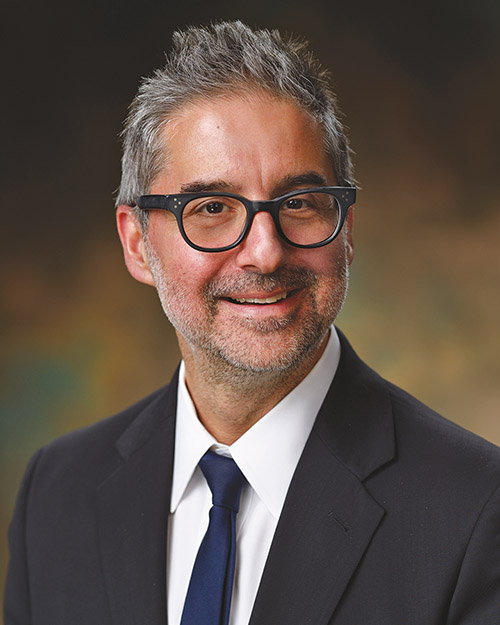
We often talk about making a kiddush Hashem, and most of us strive for that in our daily lives. Dr. Howard Weiner, a nationally recognized neurosurgeon and fully engaged member of his local Jewish community, appears to achieve this goal with ease. Currently residing in Texas, Dr. Weiner began his journey in New York after his father, z”l, an Auschwitz and Buchenwald survivor, left Europe in the hopes of securing a greater future for his family. After extensive training both medically and religiously, Dr. Weiner seems to have found that perfect balance of his values: Judaism and medicine. Today, Weiner is the chief of neurosurgery at Texas Children’s Hospital, a leading children’s hospital in this country, as well as a husband and father of three, and a person whose daily life makes a kiddush Hashem.
Weiner was born in the Bronx and grew up in Westchester County. He is the oldest son in his family, and he and his sister Gayle went to Jewish day school and yeshiva high school their entire lives. After high school, Dr. Weiner attended the University of Pennsylvania and majored in biological basis of behavior. He went on to medical school at Cornell University, where he was introduced to neurosurgery. He graduated in 1989 and spent the next eight years completing his residency at NYU Medical Center. After that, he worked in Paris for a year, and then returned to work at NYU for nearly two decades. There, he built his career and his name, eventually leading him to move to Texas to take on the role of chief of neurosurgery at Texas Children’s Hospital.
The switch from being in New York City to living in the south is not an easy one for any Jew, particularly one who is observant. Some of Weiner’s patients in Texas had never seen a Jew before, putting him in the interesting position of showing others who and what a Jew is. Weiner rose to the challenge, and finds the work he does now tremendously rewarding. He noted that he feels his job is to help children who are sick, and also provide assistance to their families.
In filling those roles, maintaining his identity as an identifiable Jew is critical. He serves as a role model for his six team members, and values acting with kindness and respect with the deepest regard; Dr. Weiner believes deeply in his mission from Hashem to be an emissary in the world. Yiddishkeit gives him the foundation to be able to connect to his patients and be the best doctor possible. Of course, he doesn’t bring his observance into the office. Rather, he allows his middot to shine through his personality in order to model his frumkeit to colleagues, associates, patients and their families.
He noted that his priority is to make the patients feel comfortable and cared for. “Obviously the science aspect is important, but the human side is where we can make a huge impact,” he said. Weiner lives by his values and transforms them into life-saving efforts in the workplace.
As rewarding as his career is, Weiner still strives to find the best balance between his religion and the secular workplace in which he spends his days. Throughout his life, Weiner has had several important Jewish teachers and mentors, including Rav Shmuel Greenberg, and maintains chavrutot with members of the clergy in Houston. This, along with going to shul, keeps him grounded, enabling him to offer “holistic healing” to his patients because of the complete person it makes him.
In 2007, Dr. Weiner started wearing a yarmulke to work and, because he was met with great support, he never looked back. Back then, he was still at NYU with a “tight chevra of doctors with kippahs.” In Texas, there are a lot more healthcare professionals and a lot fewer Jews. Texas Children’s Hospital, and Houston as a whole, does attract Jews, who are amicably greeted by the Eishel House run by the Chabad of Houston. However, being in Texas undoubtedly creates a greater responsibility for Weiner and new opportunities to make a kiddush Hashem.
Weiner believes the Jewish community in Texas is growing and that Jews may start moving there quickly. Until then, Dr. Weiner will continue serving the community of Houston and the greater region through his top-notch medical care coupled with his strong ability to act every day with middot and Torah values in a secular environment.
Hannah Kirsch just returned from a gap year in Israel and will be attending Binghamton University in the fall.












